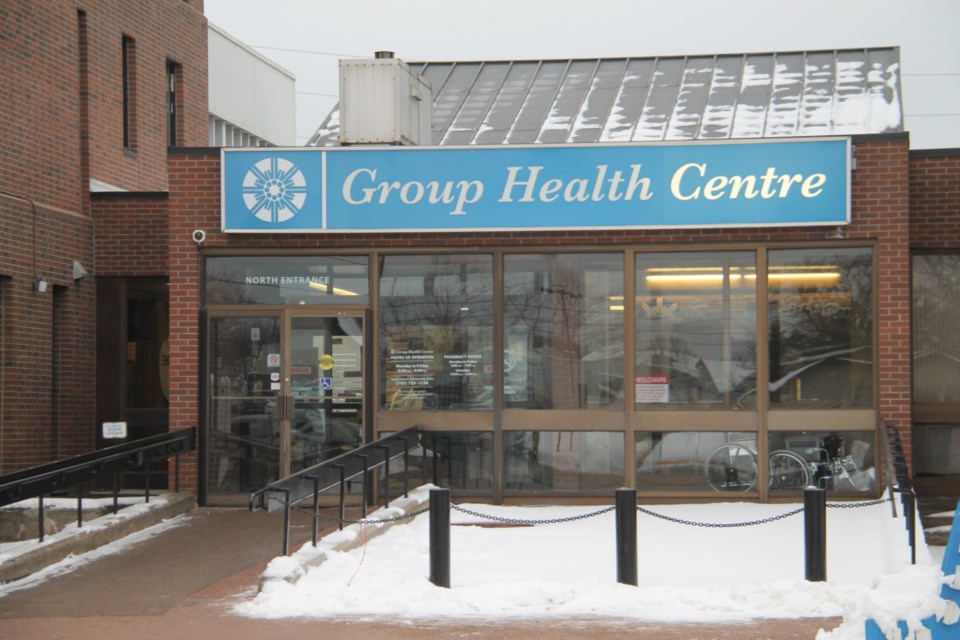A $38-million provincial investment in the Group Health Centre in 2012 came with a promise to improve access to front line care in Sault Ste. Marie, but the president of the largest steelworker local in the city says it was the start of a number of problems that led to the current health care crisis.
“The provincial government’s investment of $38-million for the Group Health Centre agreement will ensure that residents will receive increased access to front-line health care services closer to home,” said then-MPP David Orazietti, in a Feb. 6, 2012 news release announcing the five-year funding and governance agreement between the Ministry of Health and Long-Term Care and GHC. “Local residents will benefit from improvements at the Group Health Centre including extended after-hours health care and the capacity to take on new patients.”
For almost 50 years — from the time the GHC was founded to the 2012 announcement — the United Steelworkers had representation on the Group Health Association (GHA) board. But when that new funding agreement was hashed out with the province, a second board was created: the Group Health Centre (GHC) board.
Mike Da Prat, president of USW Local 2251, told SooToday the steelworkers who contributed to building the organization were partners in the GHC and had a voice in the decisions that were being made though the GHA board.
"It was our dream, we built it. Doctors came and there was a partnership between the Group Health Association and the partners, the Algoma District Medical Group," said Da Prat. "They decided that through funding and negotiations and everything that a GHC board would be created."
That new GHC board put in place in 2012 was made up from members of the GHA board and the Algoma District Medical Group, with 50 per cent representation by doctors.
Da Prat said USW Local 2251 stepped down from the GHA board because, without representation on the new GHC board, it put them in a difficult position.
"The GHC board would be the decision maker and the GHA board had all the liability, because the GHA is responsible for all the support staff all the equipment the buildings and everything, right? So if there was a decision made by the GHC board which resulted in costs, such as inappropriate determinations or whatever, then the GHA board would be on the hook," said Da Prat. "So we walked away."
That decision to leave the board, Da Prat says, should not have any bearing on steelworkers becoming de-rostered when GHC announced in January that 10,000 patients will lose their primary care provider and no longer be members.
If members are going to be released, it should be in order of when they entered and what participation they had with the Group Health, Da Prat said in a Feb. 2 article.
"It was originally developed for steelworkers and then it was it was expanded to allow other people in," he said at the time. "We shared it, we did not give it away."
The funding and governance agreement between GHC and the Ministry was mentioned in a recent letter released through a freedom of information request and posted on SooToday. Of the almost $11-million the GHC is seeking, $4.7-million is for specialist support funding that has been static since 2012.
On Sunday, SooToday reported that the GHC's lender hiked interest rates by more than four times on $4-million worth of mortgages, a direct result of January's de-rostering announcement.
When asked if the new higher payments for those loans will be sustainable for the organization, GHC spokesperson Giordan Zin told SooToday the answer is reliant on the almost $11-million the organization says is pending from Ontario's Ministry of Health.
“We are confident that with the approval of those proposals, we can sustain the increase in interest payments,” Zin said.
Da Prat said the funding the GHC was asking the ministry for was pitched as a way to prevent the organization from de-rostering 6,000 more patients — not to help cover higher interest costs.
"Now we see that this $11-million which is being requested, in part, has to go service the loans," he said.
SooToday asked if GHC had attempted to request an increase in the specialist support funding prior to the letter sent in January.
On Wednesday, Zin noted GHC's senior leadership team has completely changed in the past year and a half.
"This change significantly limits our ability to provide a detailed response regarding the rationale behind decisions made in 2012, including those related to the funding and governance agreement," said Zin. "The current team is not in a position to offer specifics on whether GHC requested the agreement to be renegotiated and the details of such a request."
